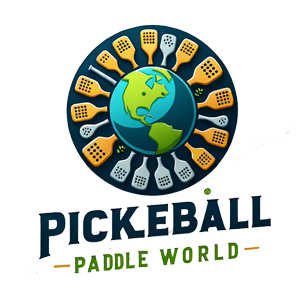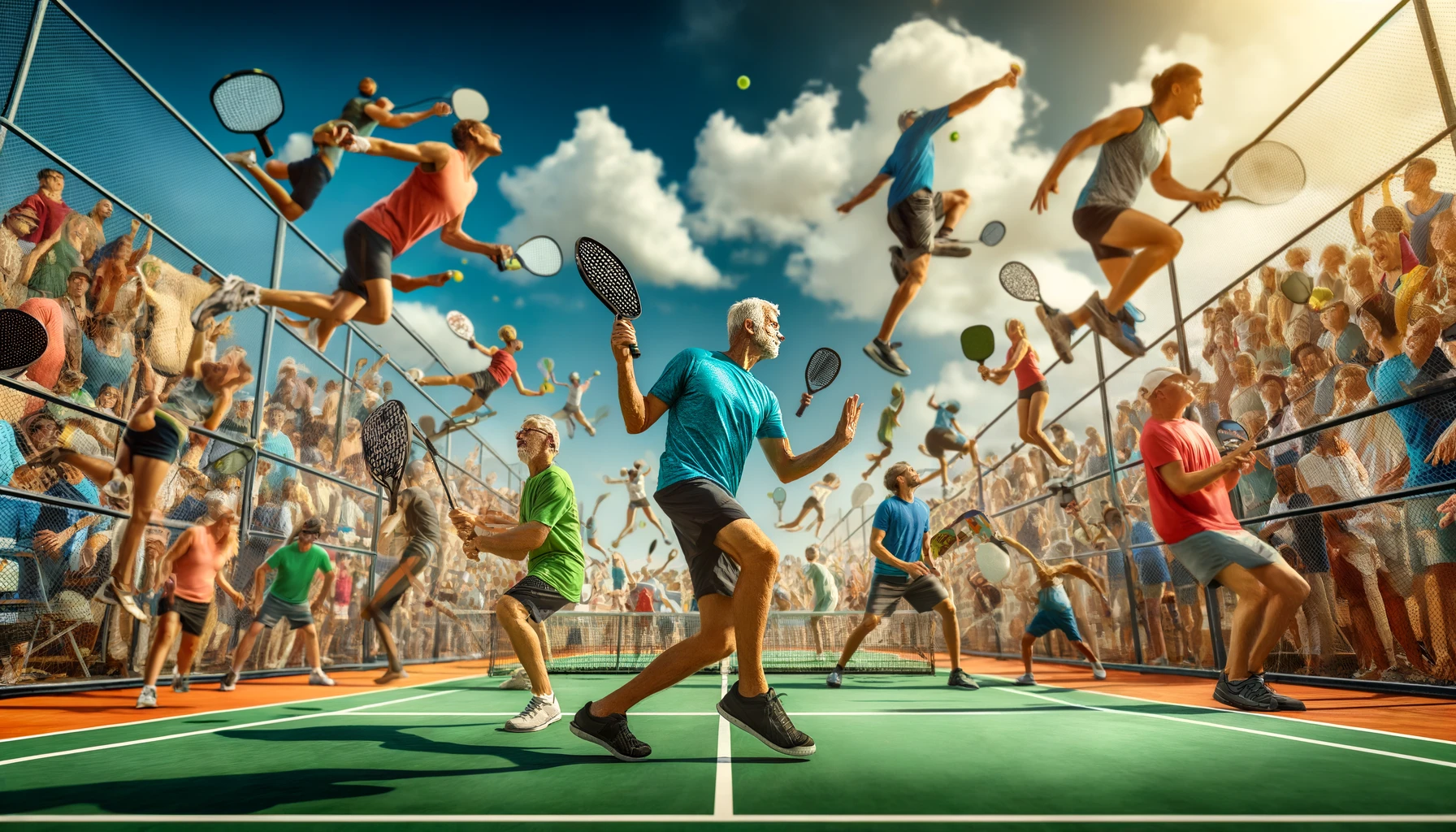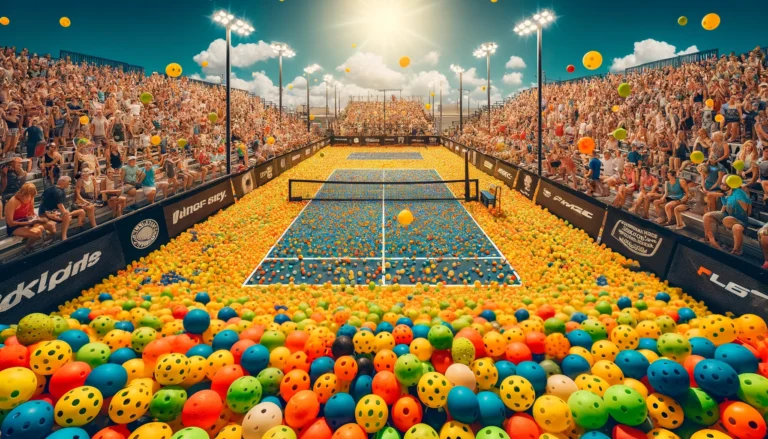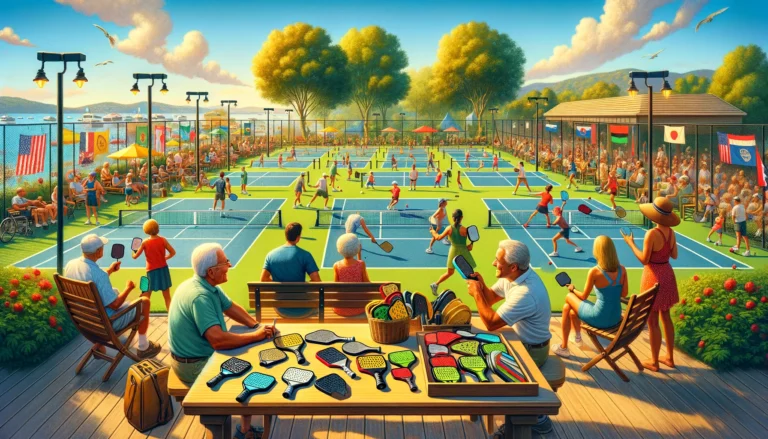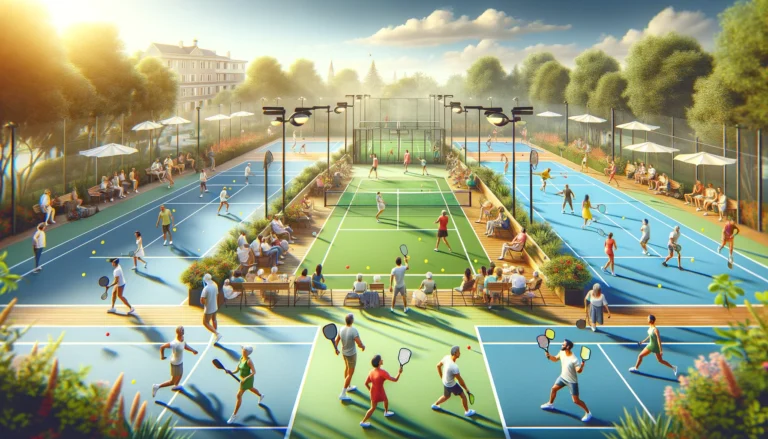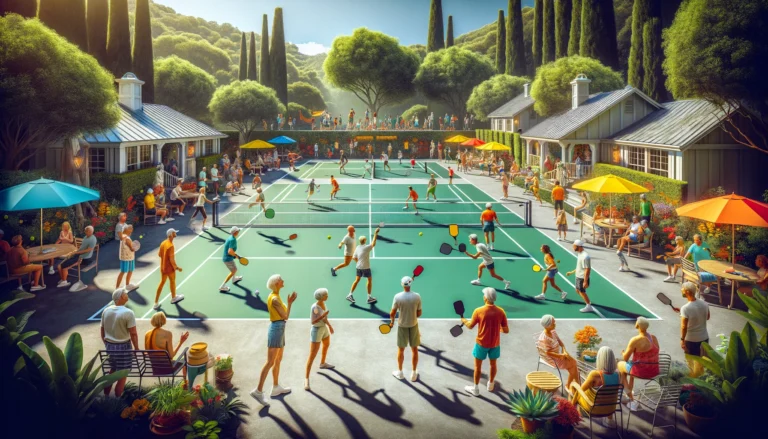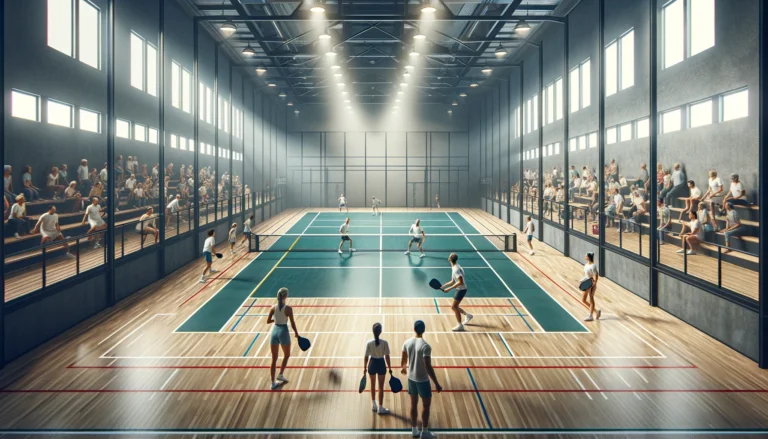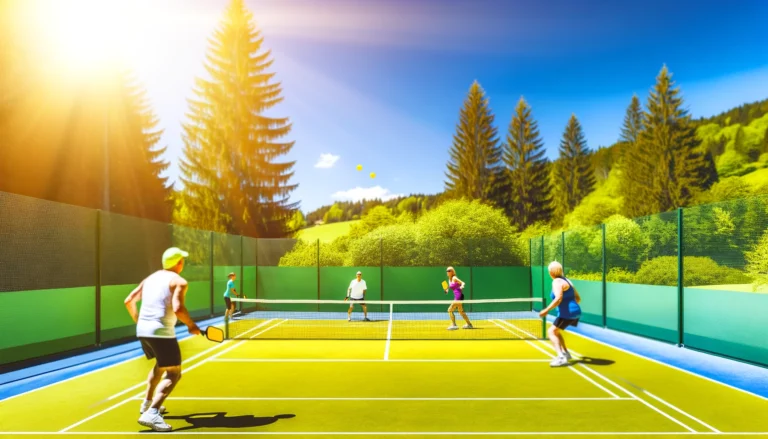21 Pickleball Mistakes That Could Be Hurting Your Game
Pickleball Mistakes
Pickleball has rapidly grown into a favorite sport among people of all ages due to its fun and engaging play style. However, like any sport, there are common errors that players often make which can hinder their performance. In this detailed guide, we’ll explore 21 pickleball mistakes, explain their impacts, and offer practical tips for improvement.
When it comes to pickleball, both novices and seasoned players can fall into similar traps. These mistakes can range from fundamental errors like incorrect paddle handling to more nuanced tactical blunders. Understanding these mistakes is essential for anyone looking to improve their game.
Missteps in pickleball can lead to unnecessary losses and frustration on the court. By identifying these common errors, players can develop a more strategic approach to their game, enhance their skills, and increase their enjoyment of the sport.
Improving in pickleball requires both knowledge and practice. This article will not only help you identify what you might be doing wrong but also provide actionable advice to help you turn those weaknesses into strengths.
1. Incorrect Paddle Grip
Grip Too Tight or Too Loose
Holding your paddle too tightly can lead to a lack of wrist flexibility, reducing shot effectiveness and control. Conversely, a grip that’s too loose could lead to the paddle slipping during play, especially in fast exchanges.
How to Fix It
Adjust your grip to a firmness that is comfortable yet allows you to switch quickly between forehand and backhand shots. Regularly practice to find the balance that gives you control without strain.
2. Poor Serve Technique
Inconsistent or Weak Serves
A poor serve sets a weak tone for the rally. Common errors include inconsistent serving that fails to challenge the opponent or serving too predictably.
Improving Your Serve
Practice different types of serves, like high soft serves or low fast ones, to keep your opponent guessing. Consistent practice in varying your serve speeds and angles can significantly enhance your effectiveness.
3. Neglecting the Non-Volley Zone
Misunderstanding the Kitchen
The non-volley zone, or the kitchen, is crucial for strategic play. Many players either ignore its potential or overcommit to it, both of which are strategic errors.
Strategy for the Kitchen
Work on balancing your time in and out of the kitchen. Practice shots that are effective in this zone, like dinks and volleys, to make the most of this critical area.
4. Failing to Communicate in Doubles
Lack of Coordination
In doubles, failing to communicate effectively with your partner can lead to confusion and missed opportunities.
Enhancing Communication
Develop clear signals and verbal cues with your partner. Practicing drills that improve your coordination and ability to predict each other’s moves can also be beneficial.
5. Inadequate Footwork
Poor Positioning and Movement
Footwork is fundamental in pickleball. Inadequate movement can lead to poor positioning, making it difficult to respond effectively to your opponent’s shots.
Improving Footwork
Incorporate agility drills and ladder exercises into your training routine to enhance your quickness and efficiency in moving around the court.
6. Overlooking Opponent’s Weaknesses
Not Playing Strategically
Many players focus too much on their play style without adapting to exploit their opponent’s weaknesses.
Adaptive Play
Observe your opponent’s tendencies and adjust your strategy accordingly. Focus on targeting their weak spots to gain an upper hand.
7. Ignoring Mental Game
Mental Toughness Lacking
Pickleball isn’t just a physical game; it’s mental too. Players often neglect the psychological aspects, leading to unforced errors under pressure.
Strengthening Mental Focus
Practice mindfulness and mental toughness exercises. Techniques like visualization and breathing exercises can improve focus and reduce game-day nerves.
8. Uncontrolled Aggression
Too Aggressive Play
Being overly aggressive can lead to mistakes, such as hitting balls out of bounds or into the net.
Balanced Aggression
Learn when to attack and when to play conservatively. Balancing your aggressive shots with strategic play is key.
9. Playing Too Defensively
Excessive Caution
Similarly, playing too defensively can allow your opponent to dictate the pace of the game and make it difficult to score points.
Assertive Defense
Work on assertive defensive techniques that allow you to turn defense into offense effectively.
10. Ineffective Shot Selection
Choosing Wrong Shots
Choosing the wrong shots at critical times can cost points and games.
Strategic Shot Selection
Practice different shots and learn when to use them effectively based on your position and your opponent’s.
11. Not Using the Entire Court
Limited Court Use
Failing to use the whole court restricts your game and makes you predictable.
Expanding Court Play
Practice hitting to different areas of the court. This will not only improve your shot range but also keep your opponent moving and guessing.
12. Forgetting to Watch the Ball
Loss of Focus
Taking your eyes off the ball at critical moments can lead to missed hits and errors.
Maintaining Focus
Concentrate on the ball until the point is over. This simple focus can significantly reduce errors and improve your reaction time.
13. Poor Paddle Maintenance
Neglecting Equipment
Using a worn-out paddle can affect the quality of your shots and your overall play.
Regular Maintenance
Check your equipment regularly for wear and tear and replace it when necessary to maintain optimal performance.
14. Not Warming Up Properly
Inadequate Preparation
Skipping a thorough warm-up can lead to poor performance and increased risk of injury.
Effective Warm-Ups
Incorporate a routine that prepares both your body and mind for play. This should include stretching, light hitting, and mental preparation strategies.
15. Lack of Practice
Inconsistent Training
Not practicing regularly is perhaps the biggest mistake players make. Regular practice is essential to improve any aspect of your game.
Regular and Focused Practice
Set a regular practice schedule and stick to it. Make sure each session has specific goals and outcomes to maximize improvement.
16. Not Learning From Mistakes
Repeating Errors
Many players make the same mistakes repeatedly because they do not take the time to learn from them.
Analyzing and Adapting
After each game, take time to reflect on what went well and what didn’t. Use this information to adjust your practice and strategies.
17. Ignoring Physical Fitness
Poor Conditioning
Pickleball requires physical effort, and poor fitness can lead to decreased performance and injuries.
Fitness for Pickleball
Include cardiovascular, strength, and flexibility training in your routine to keep your body in top condition for playing.
18. Misjudging Ball Spin
Misreading Spins
Failing to correctly judge the spin on a ball can lead to poor responses and easy points for the opponent.
Spin Recognition Drills
Practice with players who use a lot of spins to learn how to read and react to different spins effectively.
19. Rushing the Point
Impatience
Trying to finish points too quickly can lead to unforced errors.
Patience in Play
Develop a more patient approach, building points strategically rather than rushing to win them.
20. Ignoring Weather Conditions
Weather Unpreparedness
Not adjusting your game to different weather conditions can affect your performance, especially outdoors.
Adapting to Conditions
Practice in various weather conditions to learn how adjustments in wind and temperature can affect play.
21. Lacking Game Plan
No Strategic Plan
Entering a match without a strategic plan is a common oversight that can hinder your performance.
Developing Game Strategies
Plan your game strategy based on your strengths and your opponent’s weaknesses. Adjust as necessary during the match.
Conclusion
Recognizing and correcting these 21 pickleball mistakes can dramatically improve your game. Each mistake offers an opportunity for growth and development. As you work on these areas, you’ll not only become a better player, but you’ll also find more enjoyment and success on the court. Remember, improvement in pickleball, as in any sport, is a journey. Embrace each step of this journey with enthusiasm and dedication. Happy playing!
